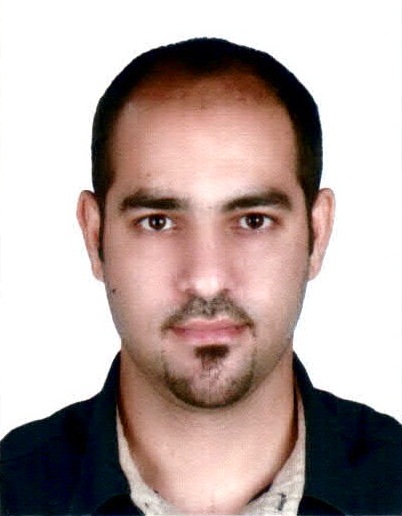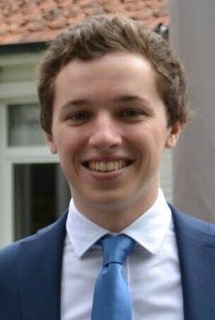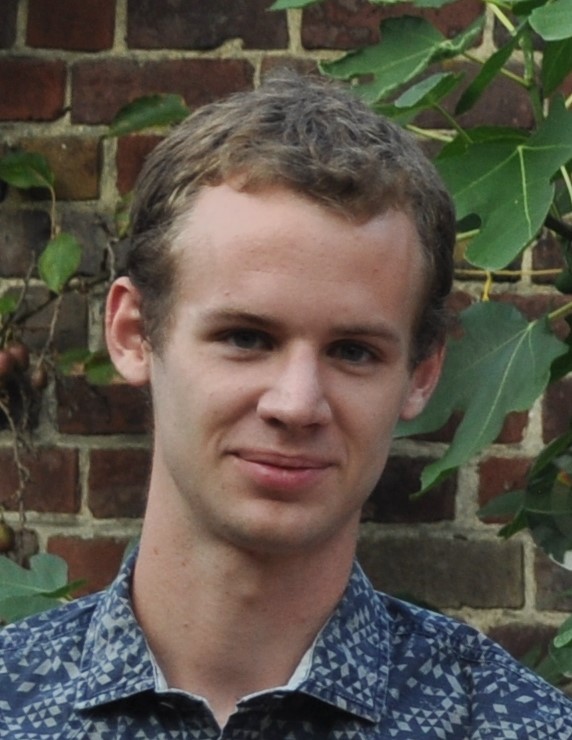Onderwerpen masterproeven 2016-2018 aan de onderzoeksgroep “Operations Research and Scheduling”
Aantal beschikbare onderwerpen: 13
Totaal aantal studenten toegewezen aan een onderwerp: 21
Belangrijke boodschap aan studenten: Voor sommige onderwerpen waar reeds studenten werden toegewezen laten we ook nog andere studenten toe. Indien interesse in een onderwerp dat reeds werd toegewezen, kan je alsnog een mail sturen naar de desbetreffende begeleider. De begeleider laat dan asap weten of het onderwerp nog kan gekozen worden. Uiteraard zijn alle openstaande onderwerpen nog beschikbaar.
Enkele belangrijke data:
-
Indienen titel masterproef: uiterlijk 25 oktober 2016
-
Tussentijds rapport: uiterlijk 9 mei 2017
-
Indienen thesis: uiterlijk 5 juni 2018
Wij zijn op zoek naar gemotiveerde studenten die zich met plezier willen inwerken in het domein van Operationeel Onderzoek/Management. Dit domein wordt in de literatuur en praktijk meestal Operations Research/Management Science genoemd (voor meer informatie, zie
www.informs.org). De algemene verwachtingen werden reeds gepresenteerd op de introductiesessie. Je kan deze presentatie downloaden via volgende link:
Masterproeven2016.
Wij verwachten van de studenten:
We verwachten van alle masterproefstudenten dat zij zelfstandig kunnen werken en dat zij een kwantitatieve ingesteldheid hebben. Voor sommige onderwerpen zijn we op zoek naar studenten die graag programmeren en die bereid zijn de basisprincipes van C++ onder de knie te nemen.
-
Inzet en motivatie vanaf begin oktober
-
Samenkomsten op vooraf geregelde tijdstippen om de voortgang en/of resultaten gezamenlijk te bespreken
-
Bij voorkeur opmaak van de masterproef in Latex
-
Aanleren van de basisprincipes van C++ voor de start van het academiejaar (handleiding beschikbaar) (niet alle onderwerpen)
De output bestaat uit een tussentijds thesisverslag in jaar 1 en een finale versie in jaar 2.
Jaar 1. Tussentijds verslag.
Het tussentijds verslag telt mee als deel van de finale evaluatie, en moet dus grondig worden opgemaakt. Download daarom de richtlijnen van het
tussentijds verslag en lees deze aandachtig. Om deze richtlijnen wat concreet te maken, hebben we via onderstaande links drie voorbeeldverslagen beschikbaar gesteld:
-
Verslag 1. Zwak verslag, Het verslag bevat geen enkele vernieuwing en is puur een samenstelling van bestaand onderzoek. De onderzoeksvraag is niet afgelijnd en het toekomstig werk werd niet perfect gedefinieerd. Finale score 0/3.
-
Verslag 2. Matig verslag. Het verslag bevat voldoende materiaal dat kan dienen als overzicht van de thesis, maar mist een grondig overzicht van het reeds gedane werk en bijhorende behaalde resultaten. Bovendien is het verslag niet origineel en vernieuwend. Finale score: 1.5/3.
-
Verslag 3. Excellent verslag. Het verslag bevat concrete doelstellingen, voldoende vooruitgang en diepgang én een sterke kijk op het toekomstig werk. Schitterende verzorging. Finale score: 3/3.
Jaar 2. Finale thesis: De praktische richtlijnen qua lettertype, vormgeving, etc. voor het finaal thesisverslag kan je op Minerva vinden. De inhoudelijke richtlijnen die wij als OR&S onderzoeksgroep nastreven vind je via de volgende link: finale thesis.
Wij bieden aan de studenten:
-
Een onderwerp dat in de lijn ligt van onze huidige onderzoeksactiviteiten
-
Opvolging van de ontwikkeling van het programma en de analyse van de resultaten
Bij elk onderwerp worden de contactpersoon, vaardigheden, maximaal # studenten en inhoudelijke aspecten kort vermeld. De inhoudelijke aspecten beschrijven kort waar de klemtoon van de masterproef ligt, maar dit kan uiteraard ten alle tijde, volgens de interesse van de student, aangepast worden.
Inhoudelijke aspecten zijn:
-
Literatuurstudie: ondersteunend, eventueel uitgebreid, uitgebreid of hoofddoel van de masterproef
-
Case study/oefening: neen, optioneel of hoofddoel van de masterproef
-
Software gebruik: neen, optioneel of ja
-
C++: neen, optioneel of ja (of eventueel een andere taal, bv. Java, VBA in excel, etc.)
Masterproeven in project scheduling:
Scheduling projects is crucial to analyze risk and control projects. Students can define a project scheduling topic and discuss it with the promotor, or select one of the challenging topics from the list below.
Topic: Modellering en planning van supplier buyer relationships met behulp van project planningstechnieken
Assigned to Sandra Van Heck
In the New Product Development (NPD) literature the advantages of good supplier buyer relationships are frequently discussed and researched. These relationships are used in Product Development Projects (PDP) to reduce the project makespan and increase the project performance. The student investigates several approaches to model the supplier buyer relationships in a project management setting. As a starting point of the analysis the academic publication “Analysis of supplier buyer relationships using resource constrained project scheduling strategies“ is available. The student gauges the impact of different priority rules, het number of suppliers and the availability of resources on the project makespan.
Advisor: Mario Vanhoucke
Skills: Project Management, Scheduling, Optimisation
Extra: This thesis is suitable for two students. Use of LaTeX is mandatory.
Substantive aspects:
Literature review: substantive
Case study/exercise: No
Software use: C++, optionally RanGen
Model/analysis: main goal of thesis
Topic: Maximisation of execution alternatives in project planning: a case study
Assigned to Viktor Moortgat
In traditional multi-mode project project scheduling only 1 execution mode per activity is incorporated in the baseline project schedule to minimise the project makespan. In escorts dealing with inherent project uncertainty, this approach is not viable. The student will collect data from companies that execute project in environments subject to uncertainty (at least 5 projects). The focus is on the planning phase of the projects. The student is expected to analyse the collected data and to compare the results of traditional project scheduling techniques with scheduling techniques that incorporate multiple alternative execution modes in the baseline project schedule. A simulation experiment will be conducted to determine the situations in which the incorporation of multiple alternative execution modes is beneficial.
Advisor: Mario Vanhoucke
Skills: Project Management, Scheduling, Optimisation
Extra: This thesis is suitable for two students. Use of LaTeX is mandatory.
Substantive aspects:
Literature review: supportive
Case study/exercise: Yes
Software use: C++, optionally RanGen
Model/analysis: main goal of thesis
Topic: The project scheduling problem with flexible project structures: a case study
Assigned to Wouter Jansen, Giel Vanhouwaert en Willem Van De Velde
(Each of these students study the same problem from a different angle. The title of their master thesis might be different from the title above.)
In the traditional project scheduling problem, most researchers implicitly assume that the project structure is fixed and known in advance. In practice, however, there might exist multiple interchangeable ways to execute work packages in a project. Consequently, the scheduling problem for projects with a flexible project structure consists of two subproblems: an alternative execution mode should be selected for each work package and the resulting project with a fixed structure should be scheduled. In this thesis, the student will individually collect empirical data on the project scheduling phase of several projects with a flexible structure. Based on these case studies, some existing scheduling techniques for projects with a flexible structure will be critically evaluated to determine their advantages and disadvantages as well as their practical relevance. The main goal of this thesis is to compare the existing scheduling techniques, both with each other and with the real baseline schedule obtained in each case study, and potentially to propose some improvements.
Advisor: Mario Vanhoucke
Skills: Project scheduling, Optimisation
Extra: This thesis is suitable for two students.
Substantive aspects:
Literature review: supportive
Case study/exercise: yes
Software use: C++
Model/analysis: main goal of thesis
Topic: A study of alternative objectives for the project scheduling problem with flexible project structures
Assigned to Michiel Vanbesien en Tom Nel
In the traditional project scheduling problem, most researchers implicitly assume that the project structure is fixed and known in advance. In practice, however, there might exist multiple interchangeable ways to execute work packages in a project. The (mainly heuristic) solution procedures proposed in literature assume that the goal of the scheduling process is to minimize the project duration, the so-called project makespan. However, the specific problem formulation of scheduling with flexible project structures allows taking into account some alternative objectives in the project scheduling process. The first goal of this thesis is to present several alternative objective functions for this project scheduling problem in order to improve its practical relevance and to compare the impact of these different alternative objectives on the final project schedule. Secondly, the student implements and investigates a (by him/herself) proposed alternative objective in more detail based on artificial data.
Advisor: Mario Vanhoucke
Skills: Project scheduling, Optimisation
Extra: This thesis is suitable for two students.
Substantive aspects:
Literature review: supportive
Case study/exercise: no
Software use: C++, RanGen
Model/analysis: main goal of thesis
Topic: An analysis of the quality/flexibility trade-off in resource-constrained project scheduling problems
Assigned to Marie Decroos
In most project scheduling problems, activities can be executed in alternative modes (time/cost, time/resource and resource/resource trade-offs) in order to improve the flexibility of scheduling in the presence of resource conflicts. Initially, most researchers assumed that the different alternative execution modes for an activity could be carried out according to the same standards of quality. Recently, however, activity-specific quality functions have been proposed to monitor the impact of different alternative execution modes on the output quality of a project. Moreover, research has gradually shifted its focus from flexibility at the activity level towards flexibility at the project level. The main goal of this thesis is to investigate how the quality/flexibility trade-off can be implemented at this higher project level. Therefore, the student will review the existing literature on the implementation of the quality/flexibility trade-off in project scheduling and implement a (by him/herself) proposed model for the quality/flexibility trade-off based on artificial (or empirical) data.
Advisor: Mario Vanhoucke
Skills: Project scheduling, Optimisation
Extra: This thesis is suitable for two students.
Substantive aspects:
Literature review: supportive
Case study/exercise: optionally
Software use: C++, optionally RanGen
Model/analysis: main goal of thesis
Topic: An application of reliable routing in project scheduling
Assigned to Stephan De Mets
In the existing literature on Operations Research and Information Systems, reliable routing is an important requirement for the design and improvement of the quality-of-service (QoS) in communication networks. This is because in data communication the choice for an energy-efficient route cannot have a negative impact on the reliability of data transition. The goal of this thesis is to investigate the potential contribution of reliable routing within the domain of project scheduling. On the one hand, the student will review the existing literature on reliable routing in particular and reliability in project scheduling in general. On the other hand, the student will develop a technique to integrate reliable routing in project scheduling and apply his/her technique to a specific project scheduling problem.
Advisor: Mario Vanhoucke
Skills: Project scheduling, Optimisation
Extra: This thesis is suitable for two students.
Substantive aspects:
Literature review: supportive
Case study/exercise: optionally
Software use: C++, optionally RanGen
Model/analysis: main goal of thesis
Masterproeven in project risico management:
Many project control topics (cf. later) also contain some risk analysis elements. Students can define a project risk analysis topic and discuss it with the promotor, or select one of the challenging topics from the list below.
Masterproeven in project control:
Project control lies at the heart of the OR&S group. Students can define a project control topic and discuss it with the promotor, or select one of the challenging topics from the list below.
Topic: Earned Duration Management: Evaluation and extension of a novel project control technique for the time dimension
For years, Earned Value Management (EVM) has enjoyed a good reputation for monitoring and controlling the cost performance of a project. For the time dimension, on the other hand, the technique performed quite a bit worse. This shortcoming was largely resolved by the introduction of the Earned Schedule (ES) concept. Nevertheless, ES-calculations are still based on metrics that are expressed in cost units. Of course, this is somewhat contra-intuitive when considering the time dimension. That is what drove the recent development of the Earned Duration Management (EDM) methodology, in which all concerning metrics are effectively expressed in time units. The main goal of this thesis is to compare the EDM method - and extensions/adaptations of it - with the traditional EVM/ES approach for project forecasting and control. This evaluation should be based on a large number of real-life projects, and moreover, a real-time follow up of ongoing projects will be necessary in order to assess the effect of potential corrective actions by management on the control metrics and forecasting outcomes of the considered methods. Several existing academic works can provide a basis for this study.
Advisor: Mario Vanhoucke
Skills: Project Management, Earned Value Management
Extra: This thesis is suitable for two students.
Substantive aspects:
Literature review: supportive
Case study/exercise: yes
Software use: ProTrack, optionally P2 Engine and/or C++
Model/analysis: main goal of thesis
Topic: Assessing the effect of corrective management actions on project forecasting and control
Many studies have already assessed the performance of different forecasting and control techniques used in project management, like for example those based on earned value management (EVM). However, these studies never take into account the effect of corrective actions taken by the project manager. Nevertheless, this effect could be very significant, and even cause methods different from those generally accepted as best performing to be preferable in realistic situations where management has intervened. Therefore, this thesis requires real-time follow up of ongoing projects in order to identify when and what corrective actions were actually taken and link those to the actual project performance. The subject of what exactly is a corrective action should also be addressed, both through qualitative (i.e. interviews with project managers) and quantitative (i.e. evaluation of data and outcomes) research. Several academic works are available as a starting point for this study.
Advisor: Mario Vanhoucke
Skills: Project Management, Earned Value Management
Extra: This thesis is suitable for two students.
Substantive aspects:
Literature review: supportive
Case study/exercise: yes
Software use: ProTrack, optionally P2 Engine and/or C++
Model/analysis: main goal of thesis
Topic: Practical application of Reference Class Forecasting: Identifying the drivers of similarity between projects
Assigned to Maarten De Smyter en Wout Vandoorne
Previous research has already indicated the vast potential of Reference Class Forecasting (RCF), a technique that bases the forecasts for a certain project on the actual performance of similar historical projects (i.e. the reference class). However, there still remains a lack of clarity regarding the definition of similarity: when exactly can a certain project be called 'similar' to another project? This definition should be formalized, based on both qualitative (i.e. through interviews with project managers) and quantitative (i.e. through evaluation of data and outcomes) research. Identification of the correct drivers of similarity could improve the selection of reference classes and thus the global performance of RCF. Furthermore, similarity might not always be found on the project level, but perhaps only on a lower work package level. In those cases, the link with the Work Package Methodology (WPM) - which divides a project into distinctive work packages consisting of similar activities - can be made. Obviously, a substantial number of real-life projects are necessary to perform this research. An existing database is available as a basis, but should be extended with new projects. Moreover, several academic works can serve as a starting point for this study.
Advisor: Mario Vanhoucke
Skills: Project Management, Earned Value Management
Extra: This thesis is suitable for two students.
Substantive aspects:
Literature review: supportive
Case study/exercise: yes
Software use: ProTrack, optionally P2 Engine and/or C++
Model/analysis: main goal of thesis
Topic: A simulation study to estimate the optimal contingency for (software) projects
Assigned to Gilles Vandecaveye
Several research avenues exist to estimate the required contingency for (software) projects. In the paper "A contingency estimation model for software projects" , the estimated contingency is related to the estimated costs and risks of software projects. However, this approach has only been tested on a limited number of projects. It would be valuable to evaluate this technique using a large set of (fictitious or real-life) project data, in order to examine the strengths and weaknesses of the approach. An additional aim of this thesis is to extend and/or improve the proposed approach based on the observations from the large scale evaluation.
Advisor: Mario Vanhoucke
Skills: Project Management, Dynamic Scheduling, Statistics, Risk Analysis, Simulation
Extra: This thesis is suitable for two students.
Substantive aspects:
Literature review: supportive
Case study/exercise: no
Software use: C++, P2 Engine, R
Model/analysis: main goal of thesis
Topic: A simulation study to integrate risk analysis and project control
Assigned to Laura Vanacker
The goal of project control is monitoring project executions in order to detect problems or opportunities. Due to uncertainty and variation, deviations from the baseline schedule are inevitable during project execution. By integrating the risk analysis phase with the project control phase, the project control process should be improved. In the paper "A new approach for project control under uncertainty: Going back to the basics", a new methodology is proposed to assess whether observed deviations from the baseline schedule are within expectations or not. The goal of this thesis is to validate this methodology by means of a simulation study, compare this technique with other techniques discussed in literature and to suggest adaptations to improve the proposed methodology.
Advisor: Mario Vanhoucke
Skills: Project Management, Dynamic Scheduling, Simulation
Extra: This thesis is suitable for two students.
Substantive aspects:
Literature review: supportive
Case study/exercise: no
Software use: C++, P2 Engine, R
Model/analysis: main goal of thesis
Topic: Monitoring bottleneck resources: detecting and resolving resource conflicts
Assigned to Gauthier Sierens, Matthias Beckers, Leonie Declerck en Jeroen De Ketelaere
The goal of project control is monitoring project executions in order to detect problems or opportunities. Delayed activities have an impact on their precedence related successors, as well as on future activities using the same resource(s). When a limited amount of resources is available and several activities require this resource at the same time, severe delays can occur. The aim of this thesis is to examine how future resource conflicts can be detected and to investigate their impact on the total project duration such that corrective action can be taken to get projects back on track.
Advisor: Mario Vanhoucke
Skills: Project Management, Dynamic Scheduling, Simulation
Extra: This thesis is suitable for two students.
Substantive aspects:
Literature review: supportive
Case study/exercise: no
Software use: C++, P2 Engine, R
Model/analysis: main goal of thesis
Masterproeven in general project management:
Any other topic on project management can be defined and discussed with the promotor.
Onderwerp: Een onderzoek naar het maken van voorspellingen in situaties zonder historiek (or: Predictions without historical data: An artificial Intelligence approach)
Assigned to Stefaan Van Caelenberghe and Sven Goesaert
Binnen operationeel onderzoek zijn er zeer veel technieken die een beslissingsnemer toelaten om een voorspelling te maken van een bepaalde waarde op basis van de historische observaties. Dit kan bijvoorbeeld gaan over de historiek van een verkoopproces, of over een productieproces waar bepaalde onzekerheden in meespelen. Echter, het voorspellen van waarden waar tot op heden nog geen historiek over bekend is, is tot op heden veel minder onderbouwd in de literatuur. Desalniettemin zijn er een aantal veel belovende technieken uit het domein van artificiële intelligentie die in deze situaties wel een voorspelling kunnen maken. Het doel van dit onderwerp is om enerzijds de literatuur rond dit soort technieken te gaan verkennen alsook deze technieken te gaan testen. Dit onderwerp leent zich zeker ook tot het bestuderen van een praktische toepassing van deze technieken door middel van een case study bij een Belgische onderneming.
Promotor: Mario Vanhoucke
Vaardigheden: Operationeel onderzoek,
Extra: Goed kunnen programmeren is zeker een plus voor dit onderwerp.
Inhoudelijke aspecten:
Literatuurstudie: hoofddoel indien geen uitgebreid experiment of case wordt gedaan
Case study/oefening: eventueel
Software gebruik: C++, Python, of R
Model/analyse: hoofddoel thesis















